Healing Hot Spring Journey: Discover Hidden Hot Springs Around the World
Catalogue
- 1 New Zealand: The enchanting charm of the volcanic geothermal wonders
- Wai-O-Tapu Geothermal Wonderland: Colorful Geothermal Landscape
- Onsen Hot Pools: Canyon views and the glittering Milky Way
- 2 Iceland: A Premier Global Wellness Retreat
- Blue Lagoon Hot Springs: "A Natural Beauty Spa"
- Sky Lagoon: Where the sea meets the sky
- 3. Japan: A land of Hot Springs
- Arima Onsen: Enjoy hot springs amid the cherry blossoms of spring and autumn maple leaves.
- Beppu Onsen: Renowned for the "Beppu Eight Hot Springs"
- Noboribetsu Hot Spring: Hokkaido's Hot Spring Retreat
- 4 Tengchong, China: The Hot Spring Hub of China
- Tengchong Rehai Scenic Area: Experience Sulfur Hot Springs and Enjoy Hot Spring Eggs
- 5 Turkey: Pamukkale's Travertine Hot Springs
- Travertines of Pamukkale: Celebrated as one of the seven wonders in the world
- 6 Hungary: Elegant Historic Bathhouses
- Széchenyi Thermal Bath: A Blend of Splendor and Nostalgia
- Thermal Lake of Hévíz: Abundant in Humic Peat Mud
- 7 South Korea: the Unique Charm of Rare Carbonate Hot Springs
- Sanbangsan Mountain Carbonate Hot Springs: A Haven of High-Quality Carbonate Waters
- 8 France: Naturally Isotonic Thermal Springs
- Les Thermes evian®: Alpine Natural Mineral Springs
- 9 Switzerland: Alpine Hot Springs
- Alpentherme: Soak in Hot Springs with Snowy Mountain Views
- 10 Thailand: the Mae Kachan Hot Spring in Chiang Rai
- Mae Kachan Hot Spring: Experience the Unique Sulfur Springs Where You Can Boil Eggs
- Hot Spring Etiquette
Show More
Hot springs are a rare gift from nature, shaped by unique terrains and geological conditions, making them diverse worldwide. From Iceland's Blue Lagoon Hot Springs to Japan's Hell Valley Hot Springs and the vibrant landscapes of New Zealand's Rotorua, each hot spring has its special charm, worth exploring and discovering.
Are you familiar with New Zealand's famous hot spring city? Rotorua is a city in the central northern part of New Zealand's North Island, known for its geothermal activity and cultural significance. Located on the southern shore of Lake Rotorua and more than 200 kilometers from Auckland, the city is famous for its abundance of natural hot springs. It serves as a home to the Māori people and is a well-known tourist hotspot. Located in an area of intense volcanic activity, Rotorua is home to numerous hot springs, which gives the city a pleasant and charming smell of sulfur. Rotorua is considered one of the most magnificent natural tourist destinations in the South Pacific.
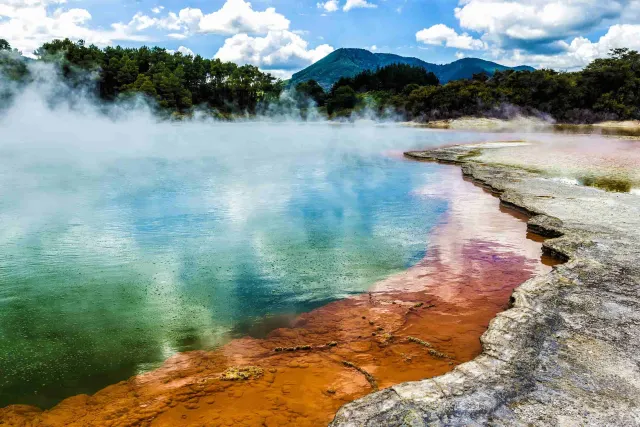
Features: Wai-o-Tapu, which translates to "Sacred Waters" in Maori, is one of Rotorua, New Zealand's most famous geothermal areas. The Wai-o-Tapu Geothermal Park, formed by volcanic activity over thousands of years, is renowned for being New Zealand's colorful and diverse geothermal landscape, featuring boiling mud pools, mineral terraces, and geysers. The park, often enveloped in mist, feels like a fairyland. Its most iconic attractions are the beautiful Champagne Pool and the Lady Knox Geyser, which erupts at around 10 AM daily.
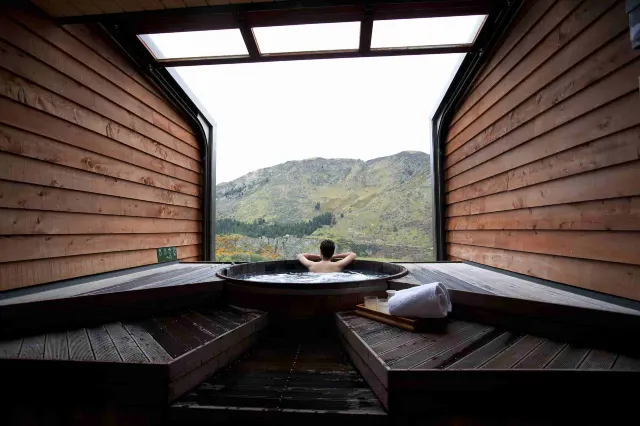
Features: Onsen Alpine Barrel Hot Springs is located near Queenstown, the resort paradise of New Zealand’s South Island, it is easily accessible with convenient transportation options.Perched on a cliffside, facing the Shotover Canyon and the snow-capped mountains. You can enjoy breathtaking mountain views and watch jet boats speeding along the Shotover River. Soaking in a hot spring, facing the open canyons or the bright Milky Way at night, drinking champagne and enjoying ice cream—it's a truly unforgettable experience.
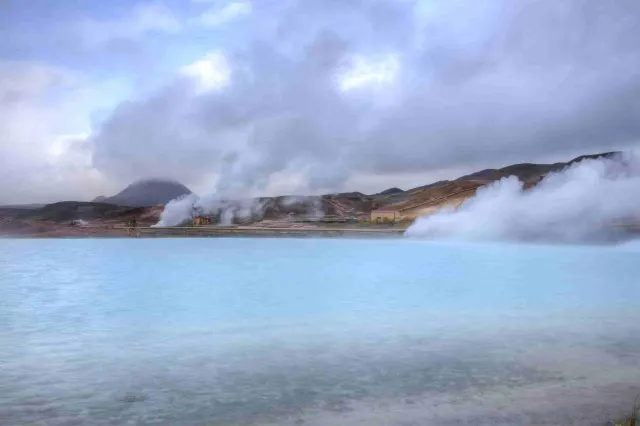
Feature: Nestled in Grindavík on the Reykjanes Peninsula of southwestern Iceland, the Blue Lagoon is a geothermal hot spring created by volcanic lava. The waters, abundant in minerals such as silicon and sulfur, bestow the lagoon with its enchanting blue color. The natural geothermal energy from beneath the earth ensures that the lagoon remains invitingly warm all year round. A favorite among locals since the 1970s, the Blue Lagoon offers a unique experience. While enjoying the warm embrace of the waters, don't miss out on applying the silica mud to your face. This volcanic mud, laden with minerals, makes for an excellent natural face mask.
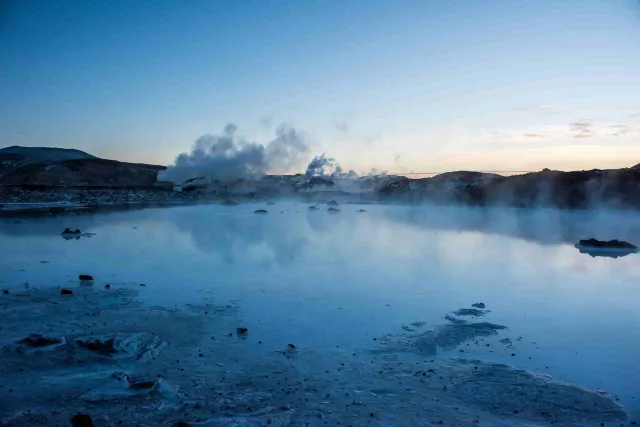
Feature: Sky Lagoon, nestled about 7 kilometers south of downtown Reykjavik in southwestern Iceland. As you step into the Sky Lagoon, you're immediately enveloped in steam, creating an otherworldly atmosphere. Perched near the sea, the pool is fittingly named "Where the sea meets the sky," providing panoramic views of the vast coastline. It's an ideal spot for catching the mesmerizing Northern Lights in the winter or basking in Iceland's distinctive midnight sun in summer.
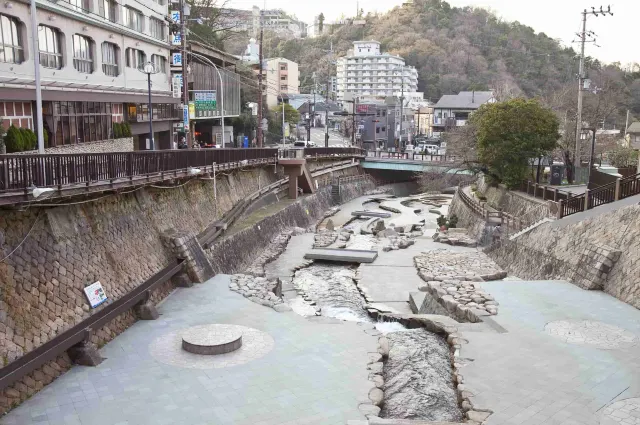
Feature: Located in the Arima district of Kobe, Hyogo Prefecture, Arima Onsen stands as one of the oldest hot springs in the Kansai region, often celebrated as "the cultural heartland of Kobe." This historic hot spring, part of Japan's trio of famed springs alongside Gero Onsen and Kusatsu Onsen, boasts a storied history of 1300 years. Surrounded by mountains on three sides, Arima Onsen offers seasonal delights with cherry blossoms in spring and fiery maple foliage in autumn, making it a beloved retreat for visitors. Immersing in its warm, soothing waters, one can enjoy the serene interplay of steam and the ethereal mountain mists.
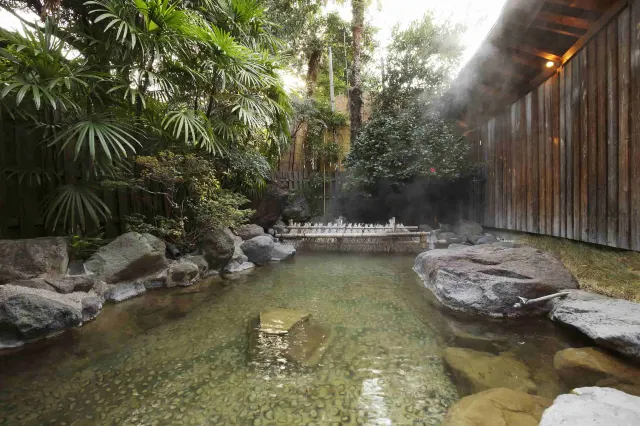
Feature: Beppu Onsen, nestled on the southwestern shores of Japan's Kyushu Island, is celebrated for its vibrant geothermal activity, featuring dramatic eruptions from areas famously dubbed "Hell." Beppu Onsen is a group of eight hot spring towns, including Beppu, Kamegawa, Kankaiji Temple, Hotta, Chaishi, Alum, Tetsuwan and Hamawaki. Each offers unique features and a variety of options, including milk baths, sand baths, and mud baths.
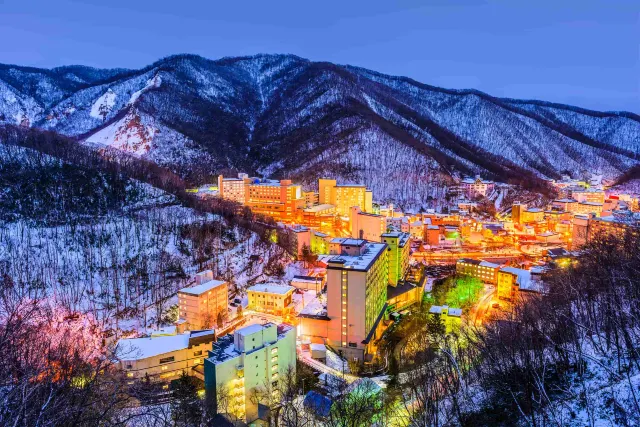
Feature: Noboribetsu Hot Spring Town is a prominent hot spring destination in Hokkaido, encircled by mountains. The town is lined with various hot spring hotels, inns, and restaurants. Attractions close by include Hell Valley, Oyunuma, and Noboribetsu Bear Park. With its extensive selection of hot springs, featureing more than a dozen different water qualities, the town offers a unique experience. Bathing in an open-air hot spring during a snowy winter day provides an exceptionally romantic and cozy atmosphere.
Tengchong, a charming border town in Yunnan, is blessed with abundant hot springs. Nestled among verdant mountains and lush forests, Tengchong's unique geographical advantages made it a celebrated hot spring destination in Yunnan. The town is renowned for its rare combination of volcanic and geothermal hot springs, widely dispersed throughout the area.
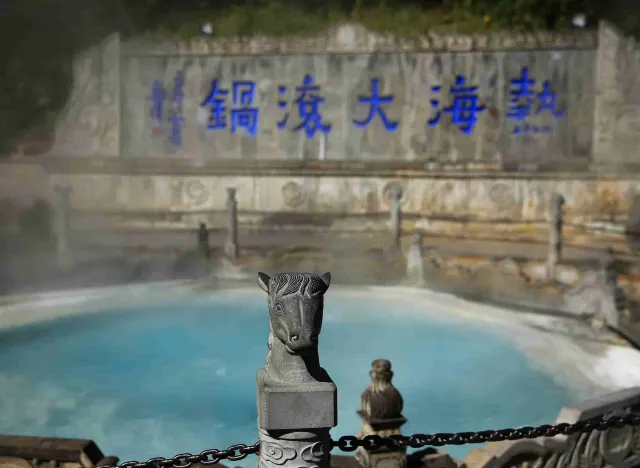
Feature: This celebrated hot spring and scenic destination is particularly noted for "The Great Boiling Cauldron of the Hot Sea." The geothermal springs here often reach temperatures between eighty to ninety degrees Celsius, creating a spectacle of spurting waters and mystical mist. The springs boast soft water and high temperatures, perfect for savoring hot spring eggs, a unique local delicacy.
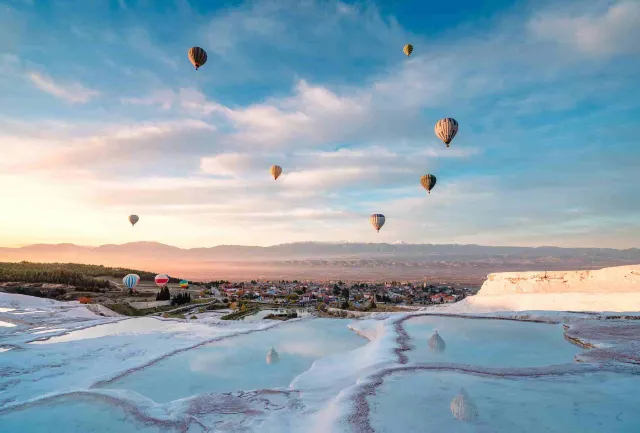
Feature: Tucked away in the Denizli Province of southwestern Turkey, the Travertines of Pamukkale are famed for their striking resemblance to a pristine, snow-white castle and have captivated visitors worldwide. These thermal springs, with a history spanning thousands of years, feature jade-like, semi-circular white terraces that cascade beautifully one atop another. Delicate streams trickle through the hillside crevices, while warm vapors cloak the area in a soft, mystical fog.
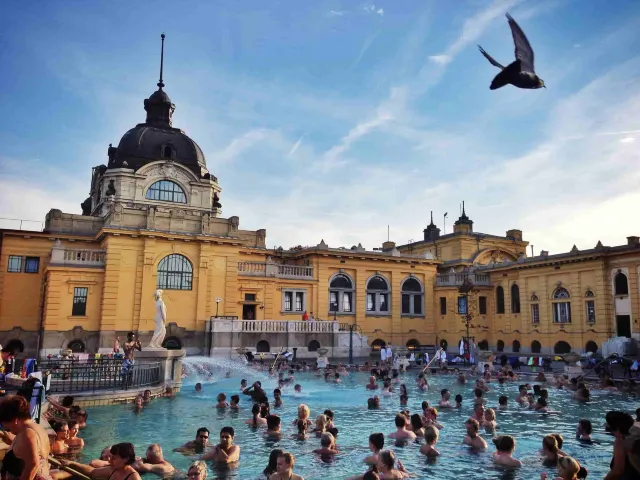
Features: Budapest, celebrated as a historic European city, is also distinguished as a unique metropolis of hot springs. The city is dotted with numerous thermal baths, originally developed by the bath-loving ancient Romans over 2000 years ago. These springs, known locally as 'Furdo'—the Hungarian term for 'bath,' attract countless visitors from home and abroad. Nestled within the city park, the Széchenyi Thermal Bath is a highlight among Budapest's thermal offerings. With its sophisticated architectural design and springs encircled by a courtyard, it embodies a timeless classical elegance.
Features: Nestled in the serene town of Hévíz, the Thermal Lake of Hévíz is celebrated for its biologically vibrant natural hot spring lake, a jewel of Hungary's national pride. It is one of Europe's largest warm-water hot spring lakes. Given its depth, bathers are required to wear life rings. With roots stretching back to the Roman era, this hot spring lake has become a distinguished landmark in the Lake Balaton region.
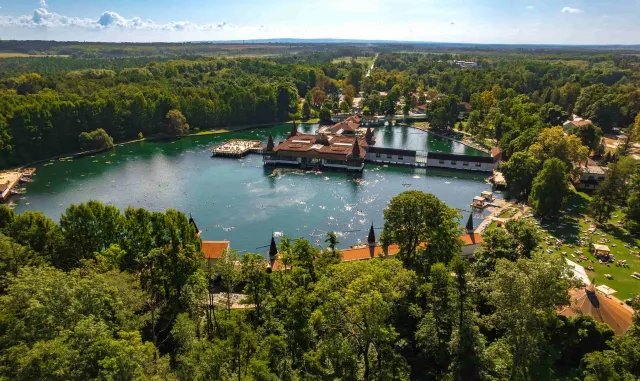
Features: Nestled in the serene town of Hévíz, the Thermal Lake of Hévíz is celebrated for its biologically vibrant natural hot spring lake, a jewel of Hungary's national pride. It is one of Europe's largest warm-water hot spring lakes. Given its depth, bathers are required to wear life rings. With roots stretching back to the Roman era, this hot spring lake has become a distinguished landmark in the Lake Balaton region.
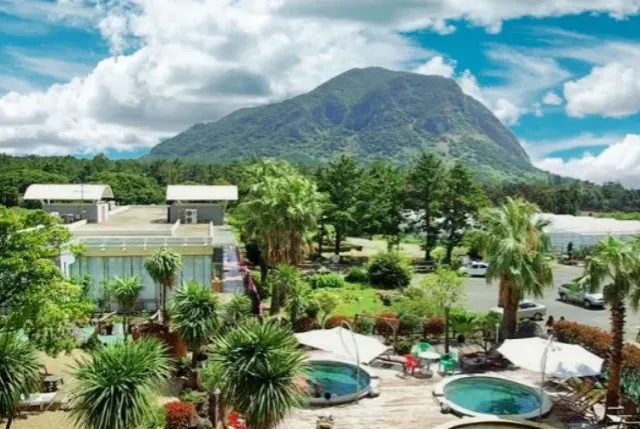
Features: Sanbangsan Hot Spring is an early hot spring on Jeju Island in the center of Samdo (Maro Island, Gabo Island, Brother Island) and Five Mountains (Halna Mountain, Sanbangsan, Gunsan, Songaksan, Dansan), and it is also a relatively rare carbonated hot spring in Korea. It was designated in 2004 as a World Hot Spring Source Protection Area.
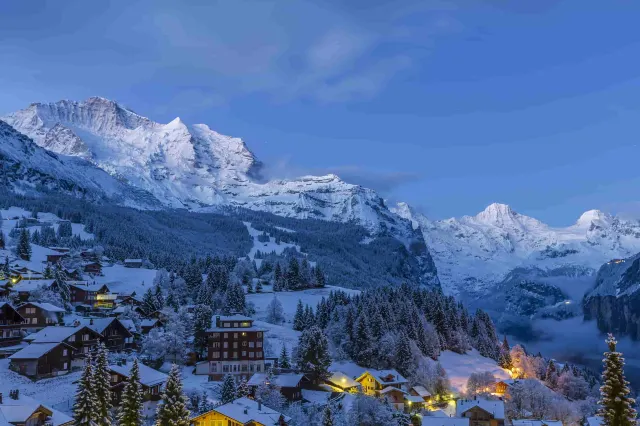
Features: The majestic Alps behind the town of Evian is the source of Evian water, which is formed by 15 years of natural filtration and mineralization of glacial sand layers in the hinterland of the Alps from alpine snowmelt and mountain rainwater. It is this very spring water that earned the French the title of" the queen of hot spring cities."

Features: The Loèche-les-Bains Thermal Center is a distinguished spa and wellness retreat in Switzerland. With roots stretching back to the Roman era, this spa city has welcomed historical luminaries like Goethe, Maupassant, and Wimpfen. It boasts the contemporary Alpentherme, perched at an elevation of approximately 2000 meters, and offers outdoor hot springs nestled amidst breathtaking snow-capped mountains.
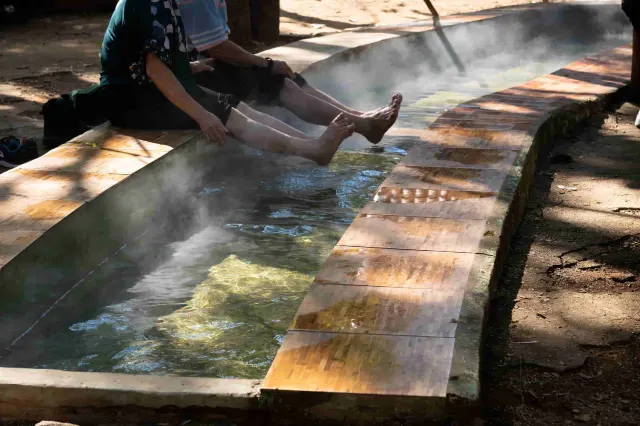
Features: Chiang Rai boasts a remarkable array of hot spring pools, mainly sulfur springs, renowned for their intense heat, comparable to boiling springs. Guests can enjoy complimentary activities such as foot soaking or egg boiling in selected pools. Close to the entrance, a geyser spectacularly erupts every 7 seconds, sending a jet of water soaring into the air.
- It's recommended to bring your own swimsuit. Please shower in the changing area before entering the hot spring, and rinse off again after soaking.
- Avoid wearing metal jewelry in the hot spring, as it will be discolored due to sulfur.
- Start with a lower-temperature pool and gradually move to hotter ones. Don’t stay in too long – about 10-15 minutes per session is ideal.
- People with certain skin conditions should avoid hot springs. Those with winter itch, eczema, or atopic dermatitis may experience worsening symptoms if they soak too long, as it can speed up moisture loss and damage the skin's protective barrier.
- Individuals with skin allergies, heart disease, high blood pressure, pregnant women, those who recently had surgery, or during their menstrual period should avoid hot springs.
- Don’t soak when you're hungry, right after a meal, or after drinking alcohol. It's recommended to wait at least an hour after eating.
- In Japan, there are some specific onsen rules: Before entering the bath, you should thoroughly clean your body in the shower area. Tie your hair up with a rubber band before soaking. Most hot springs don’t allow people with tattoos, though many public baths do.
Trending Travelogues
Popular Travel Types
Popular Attractions
Popular Ranked Lists
Popular Destinations
Recommended Attractions at Popular Destinations









Site Operator: Trip.com Travel Singapore Pte. Ltd.



